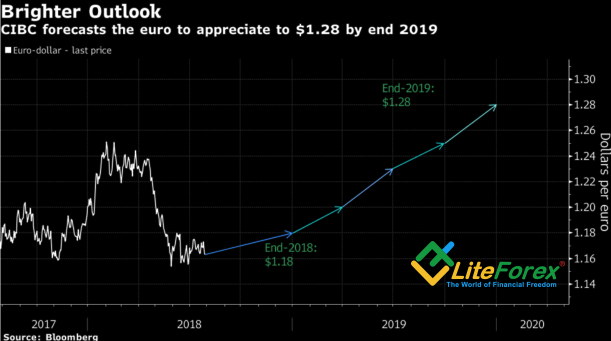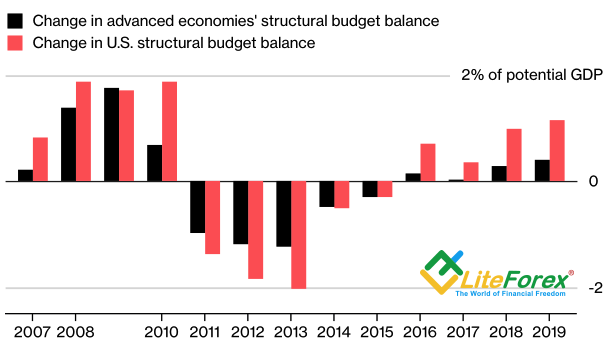EUR/USD bulls went ahead as the ECB willingness to retain the interest rate doesn’t match the Euro-area economy’s expansion.
EUR/USD bulls managed to draw the euro price up above figure 17 base due to the drop in Treasury yield, concerns about Fed’s neutral rhetoric and the strong statistics on Germany inflation. There are rumors in the market that the Fed needs to normalize monetary policy more aggressively than the rival central banks to continue the USD index rally. But it’s rather hard, as Donald Trump is annoyed by increasing the federal funds rate, and the ECB is clearly hiding something.
Investors are still dwelling upon the information, suggested by the last meeting of the Governing Council. Yes, Mario Draghi has explicitly stated that the interest rate is likely to remain the same through September, 2019; however, he was quite optimistic about the prospects of the eurozone economy and noted easing of the trade war tensions, after the EU-USA truce. Euro bulls has discovered an obvious contradiction, and so, they have been encouraged to expect the EUR/USD price to continue rising. For example, CIBC expects euro dollar exchange rate to reach 1.18 and 1.28 in late 2018 and early 2019. Bloomberg median forecast for the same periods suggests 1.18 and 1.26.
EUR to USD forecasts
Source: Bloomberg.
At present, the market expects an increase in the deposit rate in September, and the ECB refinancing rate to be hiked in December, 2019. If the positive macroeconomic statistics will suggest earlier timeliness, euro supporters will be encouraged. CPI was 2% up in July; core inflation rate was 1.4% up. In addition, Commerzbank expects a further increase due to a higher pace of average wages growth.
Moreover, if the Euro-area lacks the internal demand, it can be stimulated by means of expansionary fiscal policy. The USA fiscal stimulus has started the tendency, so, why shouldn’t other countries follow its example? According to Morgan Stanley, in 2018-2019, the budget deficit in the USA, Euro-area, Japan and Great Britain will expand from 2.5% up to 2.8% and 3%. The ECB believes the fiscal policy to be moderate expansionary, and the abandoning of the fiscal consolidation principles can accelerate the economic expansion.
Dynamics of structural budget balance

Source: Bloomberg
I, personally, think that euro success is not that substantial. Another matter is that dollar loses its earlier advantages and needs a new driver. Investors’ doubts that the USA economy will further expand at the same pace (+4.1% Q-o-Q) as in the second quarter are supported by the growing risks of slower monetary normalization by the Fed and the drop in Treasury yield. The latter may have resulted from the BoJ unwillingness to quit its ultra-loose monetary policy, which lured the Japanese investors back to the U.S. securities.
The market will carefully watch the reports on the Euro-area GDP and inflation. A pleasant surprise will encourage EUR/USD bulls to storm the resistance at 1.1745.
